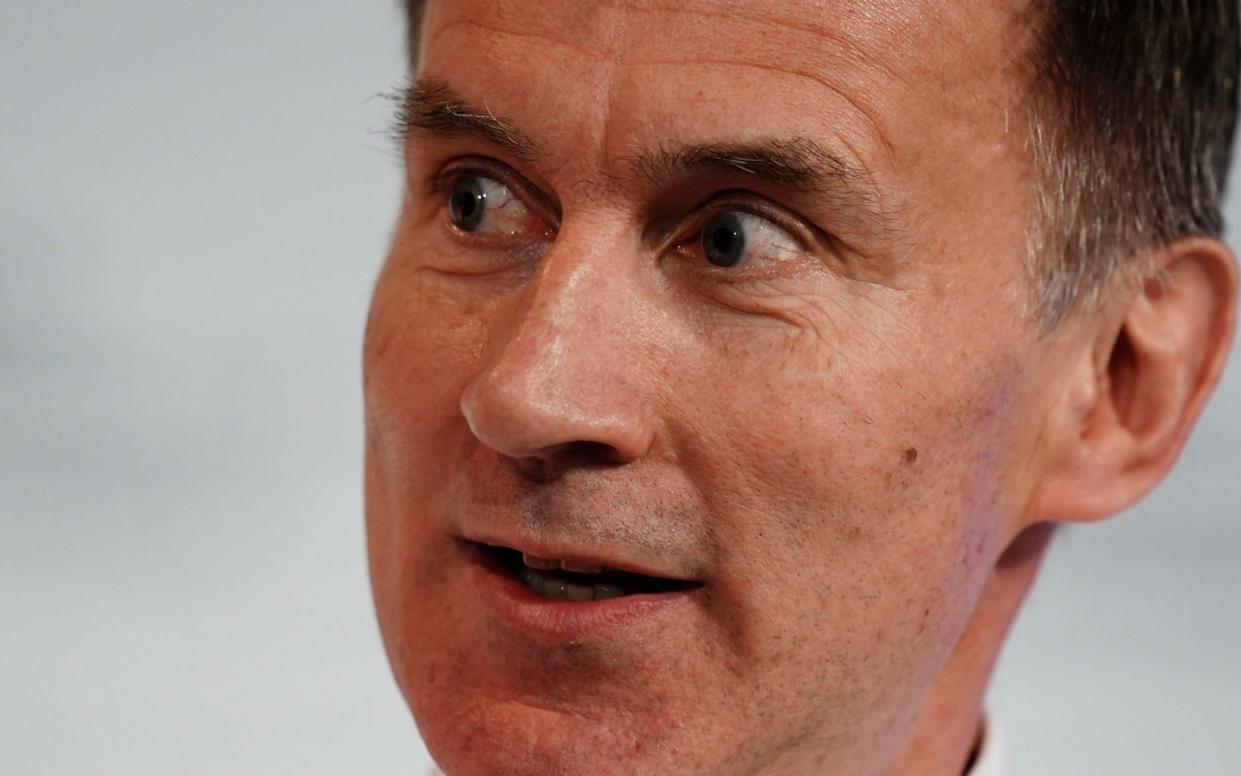Jeremy Hunt launches productivity task force to target public sector efficiency

Jeremy Hunt is launching a productivity task force led by his deputy to review the performance of government departments and the NHS, amid fears the public sector is failing to keep pace with private firms.
John Glen, the Chief Secretary to the Treasury, will assess how efficiency can be improved to guard against the state “growing ever bigger”.
The task force will look at how to do “more for less”, with a focus on digitisation and the use of artificial intelligence, according to a Government source.
Improving productivity could be a means to buy Mr Hunt more headroom as he comes under mounting pressure from his own party to deliver tax cuts.
He has left himself a buffer of just £6.5 billion to meet his own fiscal rule of getting debt-to-GDP falling within five years, the smallest of any chancellor since at least 2010.
Public sector still feeling Covid effects
Mr Hunt will announce the new task force in a speech at Monday’s Margaret Thatcher Conference on Opportunity.
He will argue the kind of growth needed to boost living standards must be driven by increases in productivity, starting with the public sector, which has fallen into a slump since the Covid crisis.
“We start from a low base. Public sector output is 5.7 per cent lower than pre-pandemic compared to the private sector, which is 1.3 per cent higher,” he will say.
“What does that tell you? Our innovators, job creators, entrepreneurs and risk-takers have bounced back but the public sector is still feeling the effects of a once-in-a-lifetime pandemic.”
Mr Glen will be asked to lead a “major public sector productivity programme across all government departments”, which will report to Mr Hunt in the autumn.
“He will assess how we can increase public sector productivity growth, both in the short term and in the long term to deliver the additional productivity gains we need every year that could stop the state growing ever bigger,” the Chancellor will say.
He will add that the Government will also seek to “enable” reform in the private sector where possible.
Productivity vital to growth
Mr Hunt will point out that the Office for Budget Responsibility’s long-term forecasts for the public finances from the end of this decade suggest that the size of the state is set to grow by nearly half a per cent more than the size of the economy each year.
Without any action, he will warn this could lead to a public sector debt of 217 per cent of GDP by 2071 – more than double the current proportion.
He will argue that tackling inflation “relentlessly” must be the immediate priority but that this is only the “starting point”, stressing that productivity is vital to growth.
The Organisation for Economic Co-operation and Development predicts that the UK will avoid recession this year, although the economy is expected to grow by just 0.3 per cent – up from its previous prediction of a 0.4 per cent contraction.
But Britain’s inflation is expected to be among the highest in the 38-member club of industrialised economies in 2023.
Concluding his speech, Mr Hunt will say: “Growth gives hope to young people about their prospects. It gives security to older people about the public services they need.
“It gives reassurance to taxpayers about the burden they are being asked to bear. But it needs productivity.
“A dynamic, high growth future is ours for the taking – and productivity, not borrowing, will be at the heart of it.”
It comes after Franziska Ohnsorge, the World Bank’s lead economist, warned a productivity or policy “miracle” is needed to prevent growth in living standards from slowing over the coming decades.

 Yahoo News
Yahoo News 
